South | |
|---|---|
| Country | |
South is a province in Guinea-Bissau. It consists Bolama, Quinara and Tombali regions. [1] [2]
South | |
|---|---|
| Country | |
South is a province in Guinea-Bissau. It consists Bolama, Quinara and Tombali regions. [1] [2]

Guinea-Bissau, officially the Republic of Guinea-Bissau, is a country in West Africa that covers 36,125 square kilometres (13,948 sq mi) with an estimated population of 1,874,303. It borders Senegal to the north and Guinea to the south-east.

The economy of Guinea-Bissau comprises a mixture of state-owned and private companies. Guinea-Bissau is among the world's least developed nations and one of the 10 poorest countries in the world, and depends mainly on agriculture and fishing. Cashew crops have increased remarkably in recent years, and the country now ranks sixth in cashew production.

Bissau is the capital city of Guinea-Bissau. In 2015, Bissau had a population of 492,004. Bissau is located on the Geba River estuary, off the Atlantic Ocean, and is Guinea-Bissau's largest city, major port, and its administrative and military centre.
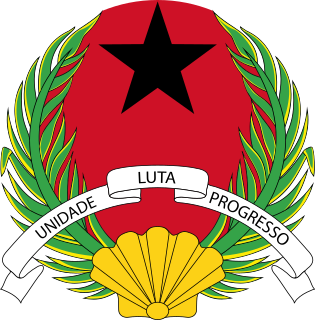
The Republic of Guinea-Bissau follows a nonaligned foreign policy and seeks friendly and cooperative relations with a wide variety of states and organizations. France, Portugal, Angola, Brazil, Egypt, Nigeria, Libya, Cuba, the Palestine Liberation Organization, and Russia have diplomatic offices in Bissau.

Kumba Ialá Embaló, also spelled Yalá, was a Bissau-Guinean politician who was president from 17 February 2000 until he was deposed in a bloodless military coup on 14 September 2003. He belonged to the Balanta ethnic group and was President of the Social Renewal Party (PRS). In 2008 he converted to Islam and took the name Mohamed Ialá Embaló. He was the founder of the Party for Social Renewal. In 2014, Ialá died from a cardiopulmonary arrest.

Bolama is an administrative region in Guinea-Bissau, consisting primarily of the Bijagós Archipelago of the country's southern coast, together with a small coastal strip centred on the coastal town of São João. It has an area of 2,624 km2. Its capital is Bolama, on the island of the same name. It is a coastal region covered with Mangrove swamps, rain forest and tangled forest and receives an annual rainfall of more than 1,000 mm (39 in).
Guinea-Bissau Creole, also known as Kiriol, is a creole language whose lexicon derives mostly from Portuguese. It is spoken in Guinea Bissau, Senegal and The Gambia. It is also called by its native speakers as guinensi, kriyol, or portuguis.

Guinean Portuguese is the variety of Portuguese spoken in Guinea-Bissau, where it is the official language.

Guinea-Bissau–United States relations are bilateral relations between Guinea-Bissau and the United States.

There are diverse religions in Guinea-Bissau with no one religion having a majority. The CIA World Factbook states there are about 45% Muslims, 22% Christians, 15% Animists and 18% unspecified or other while the US State Department mentions that estimates vary greatly and cites the Pew Forum data (2010) of 40% Muslim, 31% indigenous religious practices, and 20% Christian. Sunni Islam, including that of Sufi-oriented, are most concentrated in the northern and northeastern parts of the country. Practitioners of traditional indigenous religious beliefs generally live in all but the northern parts of the country. Christians are mostly found along the coastal regions, and belong to the Roman Catholic Church and various Protestant denominations. Christians are concentrated in Bissau and other large towns.
Education in Guinea-Bissau is compulsory from the age of 7 to 13. In 1998, the gross primary enrollment rate was 53.5 percent, with higher enrollment ratio for males compared with females.

Guinea-Bissau–Russia relations is the bilateral foreign relations between the two countries, Guinea-Bissau and Russia.
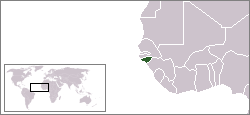
Lesbian, gay, bisexual, and transgender (LGBT) persons in Guinea-Bissau face legal challenges not experienced by non-LGBT residents. Same-sex sexual activity is legal in Guinea-Bissau, but same-sex couples and households headed by same-sex couples are not eligible for the same legal protections available to opposite-sex couples.
The WHO's estimate of life expectancy for a female child born in Guinea-Bissau in 2008 was 49 years, and 47 years for a boy. in 2016 life expectancy had improved to 58 for men and 61 for women.
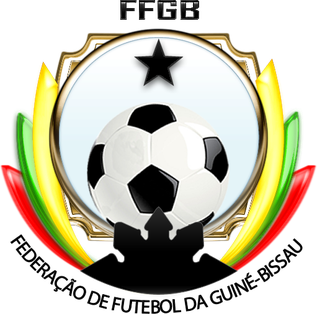
Guinea-Bissau women's national football team is a FIFA-recognised team representing Guinea-Bissau in international association football matches. Guinea-Bissau have played in two FIFA-recognised matches, both in 2006 against Guinea. The country also has a national under-17 side which participated in the 2012 Confederation of African Football qualifiers for the FIFA U-17 Women's World Cup. Football is the most popular women's sport in the country. A women's football programme was established in 2004, followed by the creation of a women's national league.
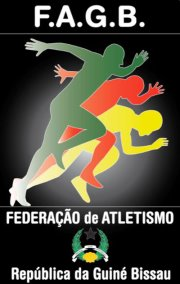
The Athletics Federation of Guinea-Bissau is the governing body for the sport of athletics in Guinea-Bissau. The current president is Renato Moura.
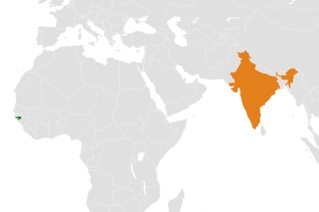
Guinea-Bissau–India relations refers to the international relations that exist between Guinea-Bissau and India. The embassy of India in Dakar, Senegal is concurrently accredited to Guinea-Bissau. India opened an Honorary Consulate in Bissau on 28 May 2010. Guinea-Bissau has no diplomatic mission in India.
East is a province in Guinea-Bissau. It consists Bafatá and Gabu regions.

Brazil – Guinea-Bissau relations refer to the bilateral relations between the Federative Republic of Brazil and the Republic of Guinea-Bissau. Both nations are members of the Community of Portuguese Language Countries.
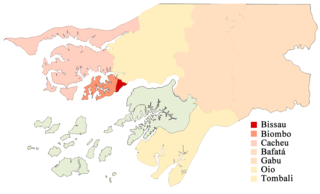
The COVID-19 pandemic in Guinea-Bissau is part of the worldwide pandemic of coronavirus disease 2019 caused by severe acute respiratory syndrome coronavirus 2. The virus was confirmed to have reached Guinea-Bissau in March 2020.